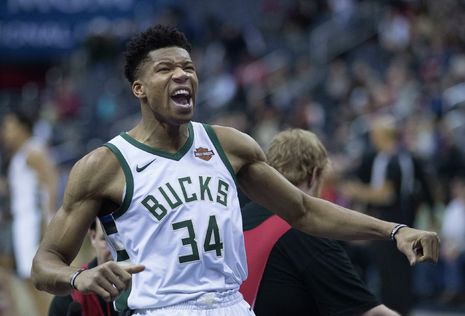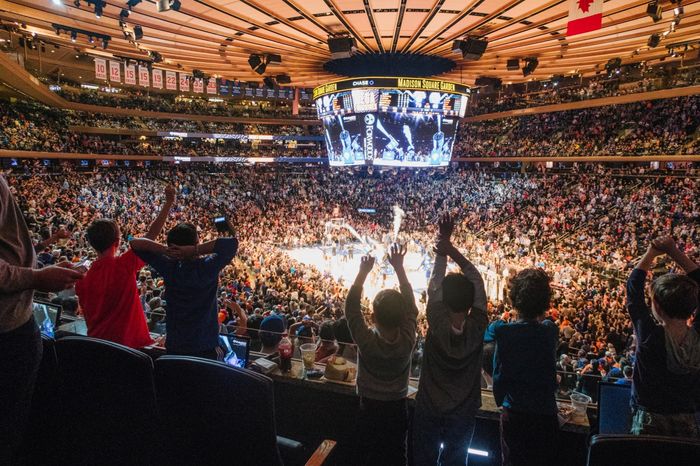NBA globalisation: the diversifying game
In the aftermath of Giannis Antetokounmpo leading the Milwaukee Bucks to a title, Tele Agusto discusses the increasing presence of foreign imports in the league and the adverse effect it’s having on the historical dominance of Team USA

In an age where building superteams is in vogue in the NBA, what the Milwaukee Bucks and Giannis Antetokounmpo managed to achieve in winning the 2021 NBA finals is nothing short of remarkable. With no current All-Stars joining him on the court, Giannis led the franchise to their first title in fifty years and cemented his legacy as one of the most dominant players of this era. In addition to the transformation of the Bucks since his arrival, Giannis’s journey to the league is far from your typical NCAA-to-NBA story.
Antetokounmpo was born in Athens to Nigerian immigrants, but due to Greece operating under jus sanguinis (right of blood) he was unable to obtain citizenship and, without any Nigerian documentation either, he was rendered stateless. With work hard to come by for his parents, Giannis and his brothers would hawk on the streets of Athens to try to make ends meet. He only began playing basketball in 2008, five years before being drafted 15th by the Bucks.
“NBA China [...] is estimated to be worth more than $4bn, and the development of this relationship has sparked a shift in the way the league conducts itself”
Giannis has built on the promise of his early NBA years to become a bona fide star, and his international background is one that is becoming progressively commonplace in the league. He became the fourth non-American to be named the regular season’s Most Valuable Player (MVP) in 2019 and retained the award the following year. In 2021, Serbia’s Nikola Jokić was voted MVP, meaning that for only the second time in league history no American has won the award for three seasons running. This time around it feels even more significant, given that Steve Nash, who won two of the three MVP awards between 2004 and 2007, was a Canadian national.
The rise of non-American, European NBA stars such as Giannis, Jokić, Luka Dončić, and Rudy Gobert has led to basketball now feeling more global than ever. Slovenia’s Dončić was crowned Rookie of the Year in 2019 and has since been named an All-Star for the last two seasons, while France’s Gobert has won Defensive Player of the Year three times and voted All-Star twice in as many years. This increasingly expansive reach of basketball has also been reflected in the fortunes of Team USA at international competitions, especially the Olympics. The Americans did not lose a single exhibition match in the build-up to either the 2012 or 2016 Games, yet this year they fell to surprise losses against both Nigeria and Australia. The defeat to Nigeria was particularly unexpected, given that they had beaten them 110-66 just four years earlier in a friendly and 156-73 four years before that at London 2012.
“The NBA has vastly expanded its global reach over the last couple of decades and the rewards have been reaped in terms of revenue and stars such as Giannis and co”
After losing to France in their opening game in Tokyo, the Americans found form as the tournament went on and they managed to defeat the same team by five points in the final. Despite winning their knockout games by an impressive average of 20 points, Team USA still experienced a drop in comparison to the easily-attained 20-plus margins in their previous three Games. Looking back even further, this margin was over 40 points at the 1992 Olympics – the first year in which the USA sent professional players to the competition, forming the so-called “Dream Team”.
The difference is that other national teams now have rosters full of NBA talent, which has been in part due to the outreach orchestrated by the league itself. Its “Basketball Without Borders” programme has seen 53 non-American participants join an NBA team since its inception in 2001 and has taken the number of international players in the league to 107 as of last season, roughly doubling the amount in the programme’s inaugural year.
Turning to the financial side of events, the NBA has recently seen a major increase in revenue from other countries, with China leading the way. NBA China, which launched in 2008 and handles the league’s business ventures in the country, is estimated to be worth more than $4bn, and the development of this relationship has sparked a shift in the way the league conducts itself.
When Yao Ming first joined the league in 2002 as the third ever Chinese NBA player, much was made of a potential rivalry with fellow big man Shaquille O’Neal. Feeling threatened, however, O’Neal made derogatory comments directed at Ming, mocking the Chinese accent. Whilst he eventually issued an apology, he faced no major repercussions.
In contrast, the NBA now has significantly close ties to China, with Kobe Bryant in particular approaching god-like status. At the end of 2019, the league even issued an open apology to Chinese fans after Daryl Morey, the then-Houston Rockets general manager, tweeted in support of protesters in Hong Kong. Although the decision to do so was controversial and the motivation behind it was likely financial, it highlights that the concerns of the league have widened beyond the USA, as the players and fan base both stem from a more diverse set of nations. It’s hard to imagine an incident like the one between O’Neal and Ming not being handled more seriously if it occurred today, partly due to public opinion rightly beginning to condemn such behaviour but also because of the relationships that the league has now established.
The NBA has vastly expanded its global reach over the last couple of decades and the rewards have been reaped in terms of revenue and stars such as Giannis and co. However, it’s clear that this success has come at a cost to the national team, who can no longer expect to waltz to Olympic titles like in years gone by and claim a fifth consecutive gold medal in Paris. The rest of the world is catching up, as the faces and stories of the league are excitingly starting to diversify.
 News / Clare Hall spent over £500k opposing busway 24 December 2025
News / Clare Hall spent over £500k opposing busway 24 December 2025 Comment / The ‘class’ of Cambridge24 December 2025
Comment / The ‘class’ of Cambridge24 December 2025 News / Caius mourns its tree-mendous loss23 December 2025
News / Caius mourns its tree-mendous loss23 December 2025 Comment / League tables do more harm than good26 December 2025
Comment / League tables do more harm than good26 December 2025 News / Girton JCR publishes open letter expressing solidarity with Palestine25 December 2025
News / Girton JCR publishes open letter expressing solidarity with Palestine25 December 2025









